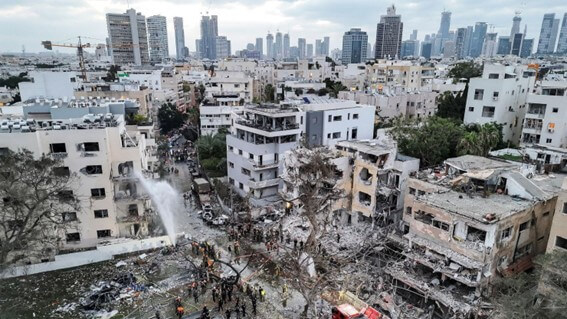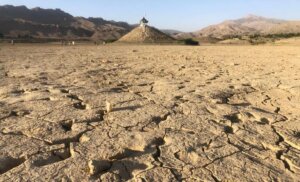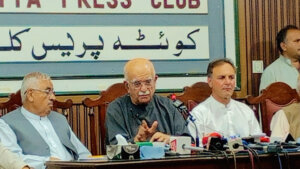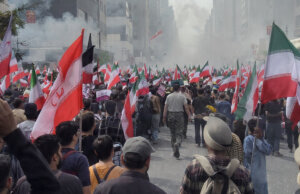Syed Muhammad Waseem:
Israel and Iran are exchanging deadly attacks. Israeli strikes have hit homes, hospitals, and aid workers in Tehran. Iran responded with missile and drone attacks on cities like Tel Aviv and Haifa. Many civilians have been killed or injured on both sides.
The conflict is drawing global attention. President Trump left the G7 early due to the crisis. UK leaders warn against military action without approval. Tensions are rising, and the risk of a wider war is growing. Global powers are urging both sides to de-escalate.
The violence is shaking the region’s stability. Political alliances are shifting, economies are under pressure, and millions fear what comes next. Behind the strikes and statements lies a deeper struggle for military power, especially between Iran and Israel. From the origins of their rivalry to current military actions, regional fallout, and global reactions, this article breaks down what you need to know.
Historical Background
The Iran-Israel conflict history began intensifying after the 1979 Iranian Revolution, which transformed Iran from a close ally of Israel into one of its fiercest opponents. Iran’s support for armed groups like Hezbollah and Hamas, along with Israel’s targeted assassinations and airstrikes, deepened the divide. The October 7 Hamas attack and Israel’s retaliation marked a sharp escalation, pushing the conflict into more direct and dangerous territory.
Over the years, the tensions have played out through a timeline of provocative events. Iran’s controversial nuclear program has drawn repeated warnings and attacks from Israel. Both nations have launched cyberattacks against each other, with incidents like the Stuxnet virus and strikes on nuclear sites. Proxy wars have continued across Lebanon, Syria, and Gaza, keeping the region in a constant state of unrest.
External powers have also shaped the conflict’s course. The U.S. strongly supports Israel with military aid and intelligence, while Iran receives political backing from Russia and economic support from China. These global ties have made the situation more complex, raising the stakes and limiting diplomatic solutions.
Current State of the Conflict
The conflict between Israel and Iran is intensifying, with Israel intercepting 30 drones and multiple ballistic missiles from Iran. Israel’s airstrikes targeted missile storage and launch sites, while also killing Iranian chief of staff Ali Shadmani.
Iran retaliated with missile strikes on Israel, causing damage in places like Herzliya, though no injuries were reported. The conflict has led to at least 224 Iranian and 24 Israeli casualties, with countries like India and Pakistan evacuating their citizens from Tehran.
Israel’s attacks have disrupted Iranian energy infrastructure, including the South Pars gas field. The violence has strengthened support for Iran’s hardliners, with global concerns rising over the ongoing conflict.
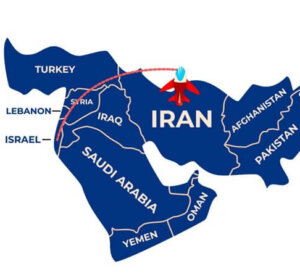
Impact on Middle East Stability
Political Instability
The Israel-Iran conflict is deeply affecting nearby nations. Syria’s new Sunni-led government has moved away from Iran. It sees Israel’s strikes as helpful in reducing Iranian influence. Iraq is under pressure as Iran-backed militias grow more aggressive. Lebanon’s Hezbollah has lost strength and is avoiding direct involvement, though tensions remain high.
Jordan and Egypt are walking a careful line. Jordan fears instability and has warned against any attacks from its territory. Egypt is worried about its energy supply and trade routes like the Suez Canal. Disruptions could hurt its economy, which depends heavily on imports and stable fuel access. Both nations aim to avoid being drawn into the conflict.
As the war drags on, regional alliances are shifting. Syria is moving closer to the West. Iraq struggles to balance relations with Iran and the U.S. Egypt and Jordan are working to protect their own security. This conflict is not just about two nations—it’s changing the political map of the Middle East.
Security and Military Impact
The Israel-Iran conflict has triggered a regional arms race. Countries like Saudi Arabia, UAE, and Egypt are increasing their defense spending. They want to upgrade weapons, air defenses, and missile systems. This rise in military buildup reflects growing fears of future attacks.
The chances of a wider war are also rising. Iran’s support for militias and Israel’s direct strikes have already pulled Syria, Iraq, and Lebanon into tension. Any miscalculation or surprise attack could quickly expand the conflict. This creates constant fear across the Middle East.
To prepare, nations are strengthening military ties with global powers. U.S. bases in Jordan and Iraq are on high alert. At the same time, Russia and China are showing more interest in the region. The Middle East is turning into a major zone of power competition and possible war.
Economic Consequences
The conflict has sent shockwaves through oil markets. Brent crude spiked by nearly 7%, reaching $74.60 per barrel. Investors fear Iran could close the Strait of Hormuz a vital route for global oil. Any disruption here could push oil prices above $100, hurting both producers and consumers.
Trade routes and airlines are also affected. Several carriers suspended flights to Iran, Iraq, and nearby nations. Jordan, Iraq, and Iran closed their airspace, halting traffic on some of the world’s busiest air corridors. These changes hurt tourism and slow cargo movement across continents.
Conflict-hit countries like Iran face added economic pressure. Sanctions, rising inflation, and oil infrastructure damage are worsening Tehran’s financial crisis. Iraq and Lebanon may also suffer due to economic ties with Iran and ongoing instability. Global inflation may rise if this war continues.
Humanitarian and Social Consequences
The human toll is rising fast. Over 220 Iranians, including women and children, have been killed. Israeli casualties are also growing. Missiles and airstrikes are displacing families, destroying homes, and leaving civilians trapped in unsafe areas.
Anger is spreading across the region. Anti-Israel protests have erupted in Iraq, Lebanon, and Egypt. At the same time, anti-Iran sentiment is growing in countries like Jordan and Syria. The conflict is deepening political divides and fueling mistrust among neighboring populations.
This rising hostility is damaging regional unity. People are taking sides based on political or religious beliefs. Online hate speech and propaganda are also increasing. If the conflict continues, the social fabric of many Middle Eastern countries could unravel even further.
International Reactions and Mediation Efforts
The United States strongly backs Israel and warns Iran of tougher retaliation. President Trump stated that future strikes could be even more brutal if Tehran doesn’t step back. Meanwhile, the EU and United Nations have urged both sides to show restraint and return to dialogue to avoid a wider war.
Russia and China have taken a different stance. Both nations criticized Israel’s actions and called for a peaceful solution. Russia offered to host peace talks, while China emphasized the need to protect energy routes and maintain regional stability.
Despite rising tension, diplomatic efforts are slowly moving. The UN is considering emergency talks, and some countries are proposing fresh sanctions on Iran. Others are pushing for a ceasefire and talks to prevent further bloodshed and protect civilians on both sides.
Conclusion
The Israel-Iran conflict has triggered political instability, military escalation, and economic shockwaves. Neighboring countries like Syria, Lebanon, and Iraq face serious risks, while oil prices and trade routes are under pressure. Civilian lives have been lost, and public anger is growing. Global powers are taking sides, but some are also pushing for peace.
This conflict is not just about two nations, it affects the whole region and beyond. With rising deaths and economic damage, urgent diplomacy is needed. Only strong regional cooperation and global mediation can stop the violence and bring long-term peace.
